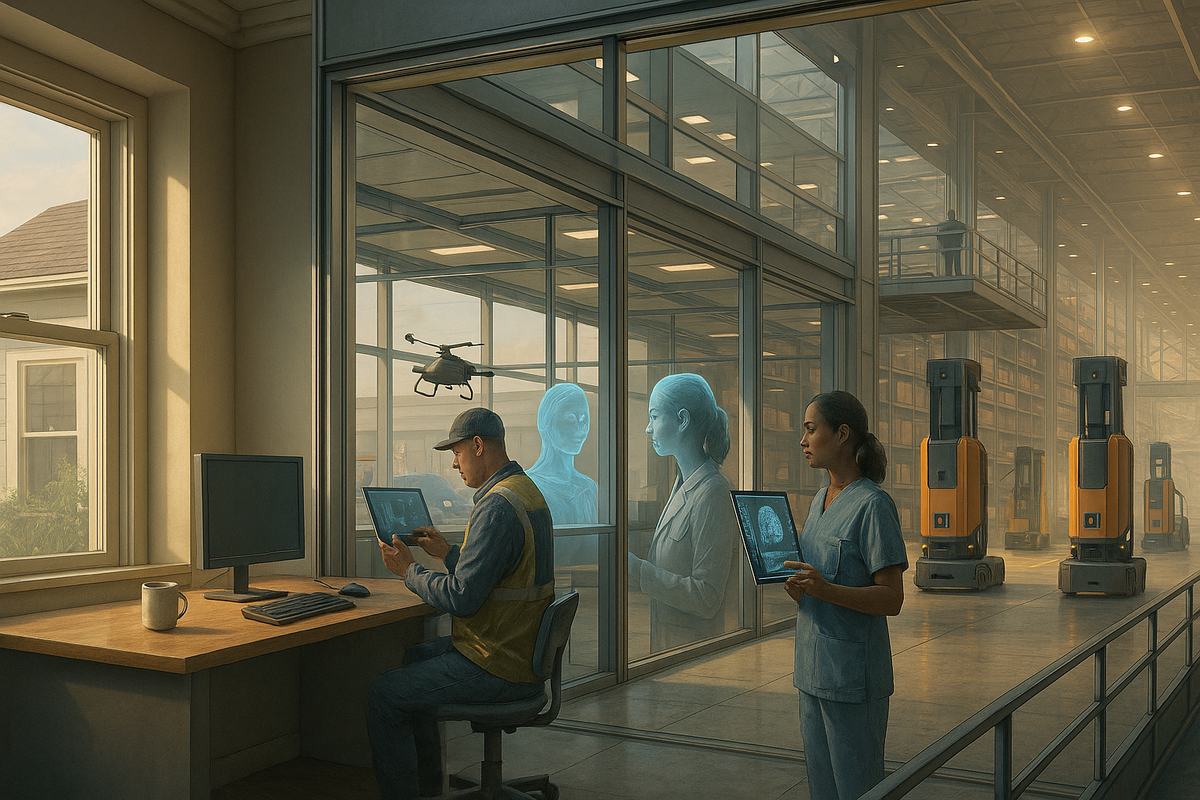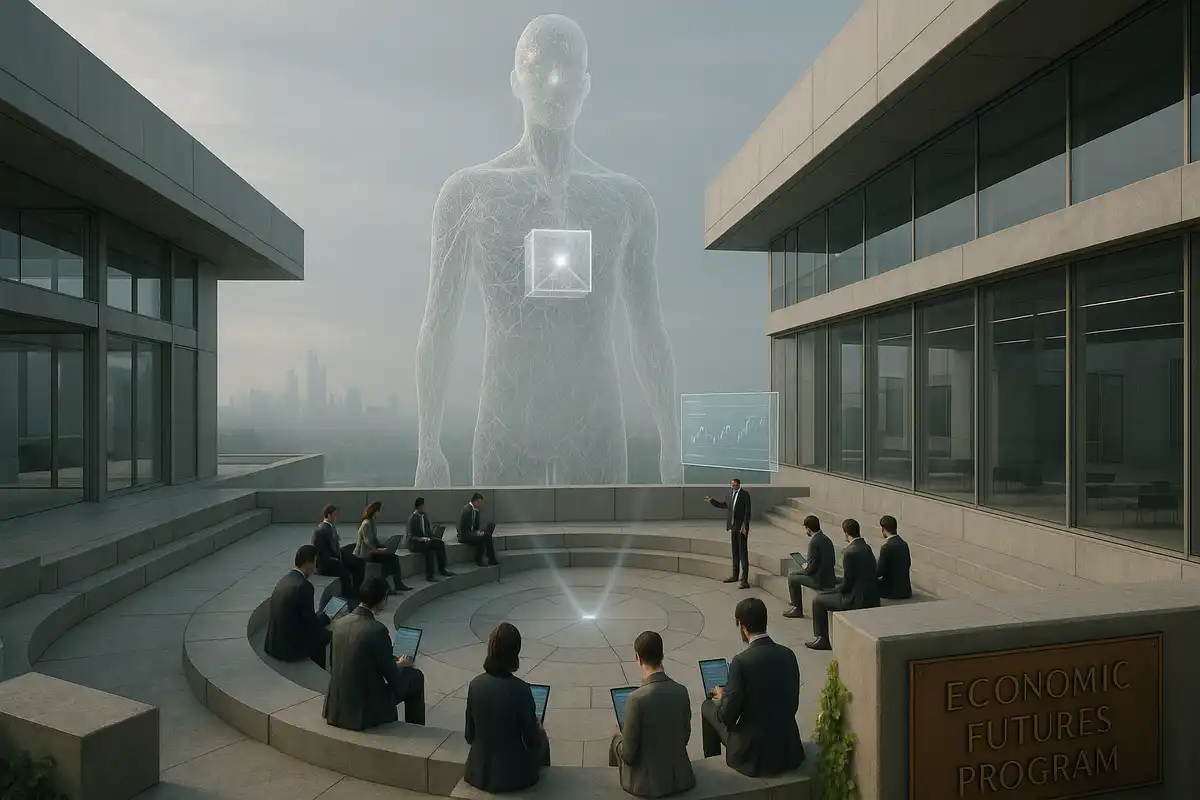Moltbot Punched Through Every Security Wall. Attackers Followed.
Researchers found 1,862 Moltbot servers exposed without authentication. The viral AI assistant stores credentials in plaintext and invites attack by design.
Microsoft cuts 9,000 jobs during record profits as CEOs drop the pretense about AI displacement. Ford's CEO predicts AI will replace half of white-collar workers. The era of corporate honesty about job losses has begun.

💡 TL;DR - The 30 Seconds Version
👉 Microsoft laid off 9,000 employees Wednesday (4% of workforce) despite reporting record $26 billion net income and $70 billion revenue last quarter.
🎮 Gaming division hit hardest with Turn 10 Studios losing nearly 50% of staff and Rare's Everwild canceled after 10 years of development.
📊 Ford CEO Jim Farley predicts AI will "literally replace half of all white-collar workers in the U.S." while JPMorgan expects 10% workforce reduction.
🏭 Amazon cut 27,000 jobs since 2022, IBM replaced hundreds of HR workers with AI agents, and multiple tech companies reduced staff in 2025.
🌍 CEOs have abandoned careful language about AI displacement, with executives now openly discussing how businesses can operate with fewer employees.
🚀 Companies are removing management layers and consolidating roles as AI agents capable of autonomous planning become mainstream across organizations.
Microsoft laid off 9,000 employees on Wednesday. The cuts affect 4% of its global workforce across teams, locations, and experience levels. This marks the latest in a series of job reductions for the software company, which eliminated over 6,000 positions in May and 300 more in June.
Microsoft just reported $26 billion in net income on $70 billion in revenue for the March quarter. The company's stock closed at a record high of $497.45 per share on June 26. Microsoft ranks as the world's second most valuable company, trailing only Nvidia.
Phil Spencer, Microsoft's gaming chief, sent a memo explaining the cuts would help "position Gaming for enduring success." The company plans to "remove layers of management to increase agility and effectiveness." Translation: middle managers are expensive, and AI can handle their work.
The gaming division suffered particularly deep cuts. Turn 10 Studios, which develops Forza Motorsport, lost nearly 50% of its staff. British developer Rare saw its upcoming game Everwild canceled after 10 years in development. Anonymous developers told VGC that Rare couldn't find the right direction for the project, even after a complete reboot.
ZeniMax Online Studios canceled its MMORPG codenamed Blackbird, which had been in development since 2018. Multiple Call of Duty support studios including Raven Software, High Moon Studios, and Sledgehammer Games faced cuts. Blizzard announced it would stop adding new content to Warcraft Rumble, affecting up to 100 employees.
The pattern extends beyond gaming. Companies are cutting staff during profitable periods, not financial distress. This represents a fundamental shift in corporate thinking about workforce optimization.
Microsoft's cuts arrive as business leaders abandon careful language about AI's impact on jobs. Ford CEO Jim Farley delivered perhaps the bluntest assessment yet: "Artificial intelligence is going to replace literally half of all white-collar workers in the U.S. AI will leave a lot of white-collar people behind."
JPMorgan Chase CEO Marianne Lake told investors in May that her division's headcount could fall 10% as the bank deploys AI tools. Amazon CEO Andy Jassy wrote to employees in June that he expected the company's corporate workforce to shrink due to "once-in-a-lifetime" AI technology.
Anthropic CEO Dario Amodei predicted that half of entry-level jobs could disappear within five years, potentially pushing unemployment to 20%. He urged executives to stop "sugarcoating" the situation.
This marks a dramatic change from executives' previous approach. Until recently, corporate leaders hedged when discussing job displacement. They emphasized that innovation historically creates new roles while eliminating others.
Private conversations tell a different story. CEOs have spent months discussing how their businesses could operate with far fewer employees. Technologies including AI, automation software, and robots are being deployed to create lean operations.
Fiverr CEO Micha Kaufman wrote to staff that professionals must accept reality: "It does not matter if you are a programmer, designer, product manager, data scientist, lawyer, customer support rep, salesperson, or a finance person—AI is coming for you."
Shopify CEO Tobi Lütke told workers the company wouldn't hire anyone unless managers could prove AI couldn't do the job. Some companies are consolidating roles, blurring the lines between product managers and software engineers into single positions.
Corporate advisers report that executives' views on AI change almost weekly as leaders better understand the technology's capabilities. They watch peers aggressively restructure hiring plans and flatten organizational structures.
Not everyone agrees with the dire predictions. OpenAI COO Brad Lightcap told the "Hard Fork" podcast that evidence doesn't support wholesale replacement of entry-level jobs. "We have yet to see any evidence that people are kind of wholesale replacing entry-level jobs," he said.
IBM CEO Arvind Krishna said his company used AI to replace hundreds of HR workers but hired more programmers and salespeople. The net effect on employment remains unclear.
AT&T CFO Pascal Desroches noted that past technological revolutions often created new job categories. "It's hard to say unequivocally, 'Oh, we're going to have less employees who are going to be more productive. We just don't know."
Companies are implementing AI agents that can formulate plans, coordinate with each other, and use digital tools autonomously. Unlike basic chatbots, these agents can achieve complex goals with minimal human oversight.
A recent Ernst & Young survey found that nearly half of 500 tech leaders are actively integrating AI agents across their organizations. The same survey showed 84% plan to expand their workforce over the next six months, suggesting the transition may create new roles while eliminating others.
Microsoft's gaming cuts reveal how this plays out in practice. The company invested heavily in AI while simultaneously reducing headcount in traditional game development roles. The message is clear: adapt to work alongside AI or risk becoming redundant.
The broader economy shows mixed signals. ADP reported that the U.S. private sector lost 33,000 jobs in June, while economists predicted an increase of 100,000. Software companies including Autodesk, Chegg, and CrowdStrike have all reduced staff in 2025.
Why this matters:
Q: How do these Microsoft layoffs compare to previous cuts?
A: Microsoft has cut over 15,300 jobs since January 2025 (9,000 now + 6,000 in May + 300 in June). This follows 10,000 cuts in 2023. The largest layoffs came in 2014 when Microsoft eliminated 18,000 jobs after acquiring Nokia. The current cuts happen during record profits, unlike past layoffs during financial struggles.
Q: Which specific games and projects got canceled?
A: Rare's Everwild (in development for 10 years), ZeniMax Online's MMORPG "Blackbird" (developed since 2018), and Blizzard's Warcraft Rumble content updates. Turn 10 Studios lost nearly 50% of staff working on Forza Motorsport. Multiple Call of Duty support studios including Raven Software, High Moon, and Sledgehammer faced cuts.
Q: How profitable is Microsoft while cutting these jobs?
A: Microsoft reported $26 billion in net income on $70 billion revenue for the March quarter. Stock hit a record high of $497.45 per share on June 26. The company ranks as the world's second most valuable company behind Nvidia. These cuts happen during peak profitability, not financial distress.
Q: Are other tech companies also cutting jobs?
A: Yes. Amazon laid off 27,000 workers since 2022. Software companies Autodesk, Chegg, and CrowdStrike all reduced staff in 2025. IBM replaced hundreds of HR workers with AI agents. The U.S. private sector lost 33,000 jobs in June when economists expected 100,000 new jobs.
Q: What types of jobs are AI replacing first?
A: Middle management roles, HR functions, and routine white-collar work. IBM replaced hundreds of HR workers with AI. Companies are removing "layers of management" and consolidating roles like product managers and software engineers into single positions. Entry-level and administrative tasks face the highest risk.
Q: How accurate are CEO predictions about AI job losses?
A: Predictions vary wildly. Ford's CEO says 50% of white-collar jobs will disappear. Anthropic's CEO predicts 20% unemployment. JPMorgan expects 10% workforce reduction. But OpenAI's COO says there's "no evidence" of wholesale job replacement yet. Past technology disruptions created new jobs while eliminating others.
Q: What should workers do to prepare?
A: Focus on skills that complement AI rather than compete with it. IBM hired more programmers and salespeople after cutting HR staff. Companies are seeking workers who can manage AI agents, interpret AI outputs, and handle complex creative tasks. Avoid roles involving routine data processing or basic analysis.
Q: Are companies creating any new jobs?
A: Some companies are hiring in AI-related roles. IBM added programmers and salespeople. An Ernst & Young survey found 84% of tech leaders plan workforce expansion over six months. Amazon says it will hire "more people in AI, more people in robotics" while cutting other positions.


Get the 5-minute Silicon Valley AI briefing, every weekday morning — free.